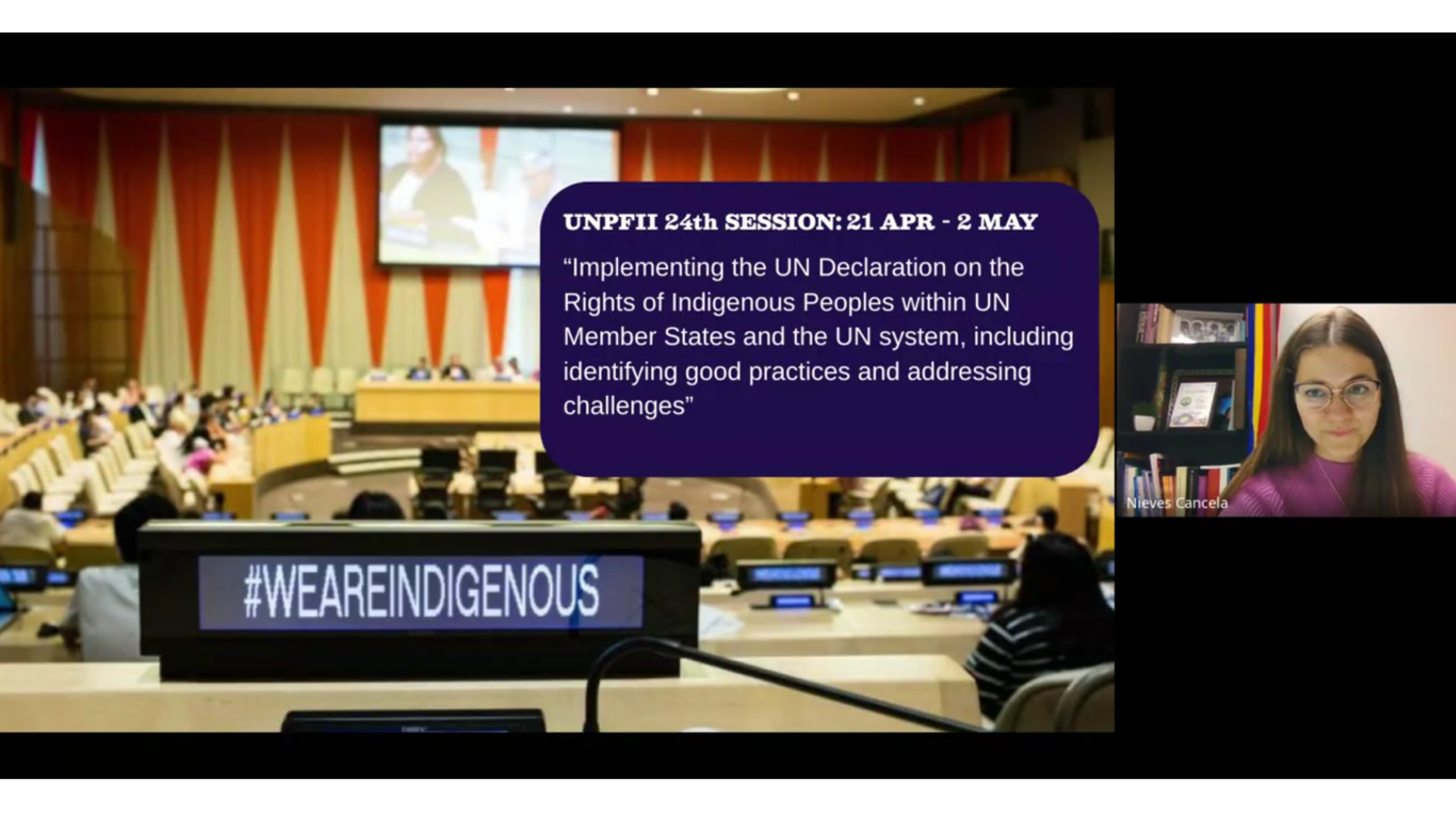On Friday, 11 April 2025, UNPO hosted a virtual training session dedicated to building the capacity of its members in engaging with the United Nations Permanent Forum on Indigenous Issues. The training offered an introductory and strategic overview of the Forum, highlighting its relevances as an important space for unrepresented communities to bring their voices to the international stage.
The session opened with an overview of how the UNPFII within the UN system, particularly its role as an advisory body to the Economic and Social Council (ECOSOC). This context served as a foundation for understanding how indigenous issues are brought into the heart of the UN and how the PFII complements the other UN mechanisms for indigenous issues at the Human Rights Council: the Special Rapporteur on the Rights of Indigenous Peoples and the Expert Mechanism on the Rights of Indigenous Peoples. Participants explored the Forum’s mandate, structure, membership, and annual work cycle.
Particular attention was given to the 24th session of the Permanent Forum, which will take place in New York from 21st April to 2nd May 2025. The training detailed this year’s agenda, key thematic discussions, and the various advocacy opportunities available to Indigenous Peoples’ representatives and civil society actors participating in the Forum. The training also included advice on best practices when speaking and participating in forums such as this. Attendees were encouraged to prepare well-defined interventions, build coalitions, and coordinate messaging in order to make impactful contributions during the sessions.
The training emphasized the PFFII as an important venue for UNPO members, many of whom identify as indigenous or represent indigenous constituencies, to raise issues often excluded from mainstream diplomatic processes. For communities facing political marginalization and systemic discrimination, the Forum offers an opportunity to present evidence, share lived experiences, and call for action before the international community. Participants were also provided with a practical guide on how to register and engage with future PFII sessions.
UNPO members such as the Khmer-Krom, the peoples of the Chittagong Hill Tracts, the Naga, the Batwa, and the Sindh have engaged with the PFII, using the platform to shed light on human rights violations, demand greater recognition, and contribute to global conversations on indigenous identity, land rights, and cultural survival.
In addition to UNPO’s regular participation in and training for the UN Forum on Minority Issues, this session reflects the organization’s broader mandate to strengthen its members’ engagement with international human rights mechanisms. UNPO will attend the 24th session of the PFII in New York later this month, where it will support the participation of its indigenous members, and engage with UN officials and other civil society actors to advance the rights of unrepresented peoples.
Through its continued involvement in forums such as the PFII and the Minority Rights Forum, UNPO reaffirms its commitment to ensuring that the voices of historically excluded communities are heard, represented, respected, and acted upon at the international level.


